If you’ve ever had a dream where your teeth were crumbling, breaking, or falling out, you’re not alone. These “tooth loss dreams” are surprisingly common — and unsettling. In fact, about 39% of people have reported experiencing at least one dream about their teeth falling out, and 16% say it happens repeatedly. Patients have recently told Dr. Max Dawabsheh from Thorncrest Dental office in Etobicoke, ON about dreams of their teeth falling out. He reassures them that it’s a common stress-related dream and not usually a sign of actual dental problems—but if there’s any pain or sensitivity, a quick check-up is always a good idea.
But why do we have these dreams? Let’s explore the scientific, psychological, and symbolic interpretations of this oddly specific yet frequent dream theme.
The Dental Connection: Bruxism and Somatosensory Dreams
One of the most straightforward explanations is that dental distress during sleep may trigger these dreams. If you grind your teeth (a condition known as sleep bruxism) or clench your temporomandibular joint (TMJ) while you sleep, it can cause physical sensations that bleed into your dreams.
In one study, researchers found that people who had dreams about their teeth falling out were also more likely to wake up with dental irritation, such as jaw soreness, sensitive teeth, or gum discomfort. This connection suggests that real physical stimuli — like occlusal trauma or jaw tension — could be the root cause of these dreams.
Interestingly, although many participants reported dental tension, most did not consciously identify as teeth grinders, meaning the link may be more sensory than behavioral.
Moreover, people with teeth dreams often experience other somatosensory dream motifs, like falling or being chased. This implies that their brains are simply more responsive to body sensations during sleep.

Symbolism and Psychology: What Do Teeth Mean to Us?
While some explanations are physical, others are emotional or symbolic. Throughout history, psychologists like Freud and Jung have analyzed dreams as reflections of subconscious fears, desires, and transitions.
1. Insecurity or Low Self-Esteem
Teeth are a big part of our appearance. Losing them — especially in a public setting in a dream — can reflect embarrassment, shame, or feeling exposed. People who are struggling with body image, public speaking, or social anxiety may have dreams where their smile fails them.
2. Loss or Grief
Some interpret tooth-loss dreams as symbolic of losing something essential: a job, a relationship, a loved one, or even a sense of purpose. Teeth are essential tools in real life — for eating, smiling, and speaking — so losing them can represent a major emotional loss.
3. Life Transitions
Teeth naturally fall out during major life stages — childhood and late adulthood. That’s why some psychologists associate these dreams with transformation or rebirth. Moving away, starting college, having a baby, or retiring are examples of transitions that might trigger this type of dream.
4. Stress and Anxiety
Increased stress can intensify dreams. During high-stress times — like during the COVID-19 pandemic — people reported more vivid and unsettling dreams, including those about their teeth. Stress also increases the likelihood of bruxism, creating a two-fold risk: physical tension and emotional turmoil.
5. Loss of Control or Powerlessness
In dreams, losing teeth without being able to stop it may symbolize a feeling of helplessness. Whether it’s a difficult relationship, a high-pressure job, or a health scare, your subconscious might use tooth loss as a metaphor for feeling out of control.
Could It Just Be Jaw Pain?
There’s a practical explanation too: jaw discomfort from impacted wisdom teeth, especially in younger adults, can be disruptive enough to show up in your dreams.
If you’re between the ages of 17 and 25, and experiencing pressure in the posterior mandibular or maxillary arch, it could be due to third molars (wisdom teeth) trying to erupt. That pressure — especially if it causes malocclusion or tooth crowding — might inspire dreams of your teeth pushing out or falling out completely.
Do These Dreams Mean Something Is Wrong?
Not necessarily. Most experts agree that tooth-loss dreams don’t automatically mean something is wrong, whether physically or emotionally. They are subjective experiences, shaped by your own waking life, stress levels, and physical sensations.
However, if you’re experiencing these dreams often, and especially if you also wake up with jaw stiffness, sensitive teeth, or muscle pain, it might be worth speaking to a dentist. You could be grinding your teeth, damaging your enamel, or irritating your periodontal ligaments without realizing it.
If the dreams are linked to anxiety, depression, or emotional distress, you might benefit from speaking with a therapist, especially if they’re causing you to wake up anxious or interfere with your sleep quality.
How to Better Understand (and Reduce) These Dreams
Here are some steps that may help:
- Keep a dream journal. Write down your dreams as soon as you wake up.
- Practice sleep hygiene. Stick to a regular bedtime, avoid screens, and limit caffeine.
- Manage stress. Consider mindfulness, therapy, or exercise to reduce anxiety.
- Visit your dentist. Ask about a night guard or occlusal splint if you’re clenching or grinding.
- Address transitions. Acknowledge big changes in your life and how they’re making you feel.
Bottom Line
Dreams about your teeth falling out are common — and complicated. They may be the result of dental distress, emotional stress, life changes, or simply your brain reacting to subtle oral sensations while you sleep.
Although they can be disturbing, these dreams aren’t necessarily a bad sign. They could simply be your mind’s way of processing stress, transition, or discomfort. Understanding what might be triggering your dreams is the key for well-being.




